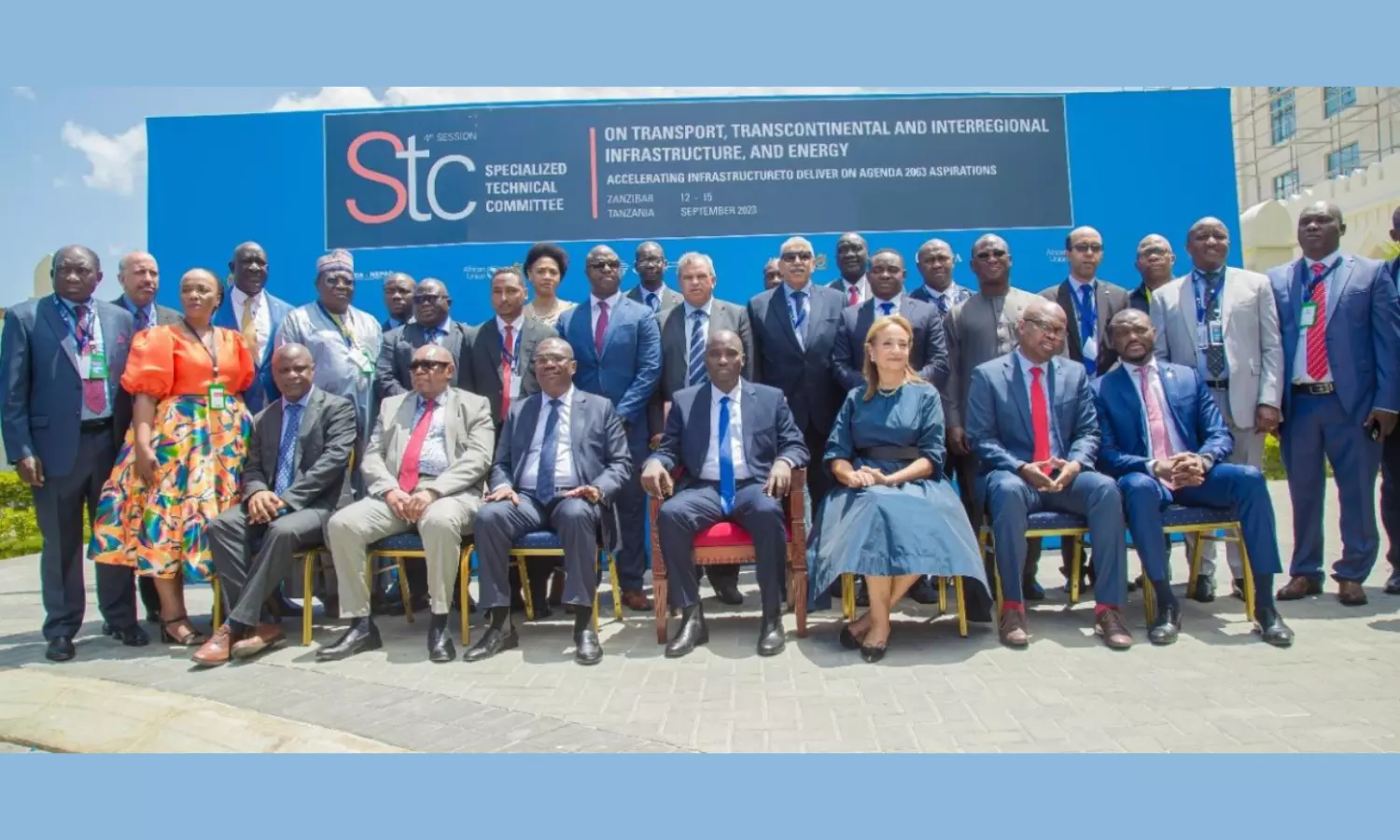African ministers commit to accelerate transport infra development
The cost of transportation in Africa is on average 50 – 175 percent higher than other parts of the world as a result of poor infrastructure.

African Ministers of transport and energy have adopted a decision to accelerate project implementation in the sectors, recognizing the need to address the barriers affecting the provision of universal infrastructure services on the continent including policy, regulatory, financial, technical and capacity challenges in addition to respond to new challenges including climate change, Russia-Ukraine crisis, and disruptions in global supply chains.
At the just concluded 4th Ordinary Session of the Specialized Technical Committee on Transport, Transcontinental and Interregional Infrastructure, and Energy, the ministers forged solutions for Member States and Regional Economic Communities (RECs) to harmonise strategies, strengthen cooperation and accelerate implementation of projects to facilitate access to modern, sustainable, climate-resilient and universal access to infrastructure services to achieve the goals of the AU Agenda 2063 for continental integration, prosperity and peace.
The cost of transportation in Africa is on average 50 – 175 percent higher than other parts of the world as a result of poor infrastructure. About 60,000km and 100,000km of new roads are required to provide effective intracontinental connectivity in Africa by 2030. The current pace of infrastructure development in Africa cannot keep up with rising demand from communities and markets, subsequently having an impact on Africa's competitiveness and participation in global markets. The poor state of infrastructure has led to the reduction of national economic growth by 2 percent annually in most African countries and as much as 40 percent reduction in industrial productivity.
To accelerate implementation of commitments and projects supporting transcontinental and Interregional Infrastructure, the ministers made emphasis on the importance of designing climate resilient and smart infrastructure projects and the importance of digital solutions and new emerging technologies in designing and enhancing efficiencies of transport and energy infrastructure projects and services.
The AU Commission in collaboration with African Union Development Agency-( AUDA- NEPAD), the African Development Bank Group (AfDB) and United Nations Economic Commission for Africa (UNECA) were tasked with engaging with development partners and Development Finance Institutions to mobilize resources for projects preparation and implementation of PIDA-PAP 2 projects; develop capacity building initiatives and provide technical assistance to support Member States and the RECs in structuring, implementing, and monitoring the execution of infrastructure projects as well as for member states to create an enabling environment for the private sector and public-private partnerships, build institutional capacities and implement the necessary policies and regulatory frameworks to facilitate the implementation of PIDA-PAP 2 projects.
A call was extended to Member states to fast-track the ratification process for the Road Safety Charter, the Maritime Transport Charter and the Luxembourg Protocol on railway rolling stock, additionally, to complete the harmonisation and domestication of the Yamoussoukro Decision, and to join the Project Implementation Pilot (PIP) initiative to accelerate the implementation of Single African Air Transport Market (SAATM). As at September 2023, 36 Member States, representing 90% of air transport traffic, have joined SAATM. The AU Commission and African Civil Aviation Commission (AFCAC) in collaboration with partners are working on the liberalisation of markets through the development of polices, regulations and dispute settlement mechanisms, among others.
The implementation of the second Priority Action Plan of the PIDA Programme – PIDA-PAP 2, is underway. The PIDA-PAP 2 contains 69 large-scale projects expected to cost more than US$160 billion over its ten-year implementation plan. Despite the laudable achievements and the learning curves over the first ten-years implementation of PIDA faced challenges of projects financing and implementation. Out of over 430 projects in PIDA PAP 1, about 50% of the projects failed to reach the construction stage while 30% failed to go beyond the feasibility stage.
However, successes were recorded in the transport sector where 16,066 kilometres of roads and 4,077 kilometres of railways have been developed, strengthened by nearly 120 Single Border Posts. In the energy sector, 3,506 kilometres of transmission lines were installed, lighting the way for 232 GW of electricity and connecting African electrical networks.
Adequate financing remains a critical issue for infrastructure development in Africa. African Union Commissioner for Infrastructure and Energy Dr Amani Abou-Zeid notes that while African Governments have spent about 3.5% of their GDP on infrastructure development over the last 20 years, the amounts are low compared to China and India, who spend 7.7% and 5.2% of their GDP on infrastructure, respectively. More spending is needed on infrastructure development to ramp up domestic investments.
Underscoring the significance of the infrastructure and energy as critical enablers if the African Continental Free Trade Area objectives of socio-economic development, and unlocking the potential of other sectors, Mr. Doto Biteko, Deputy Prime Minister of the United Republic of Tanzania, observed that the AfCFTA and regional infrastructure development will open more possibilities for African Island States like Zanzibar to integrate with other AU Member States through trade and efficient infrastructure services. “Infrastructure is critical to our economies in enhancing trade and job creation, especially for Africa’s youthful population. African countries stand to gain from a continental approach. Leveraging on essential technologies like digital solutions is critical. Enhancing efficiencies and modernising port services is essential. I am pleased to note that the Africa Integrated Maritime Strategy and the African Maritime Transport Charter seek to promote cooperation among Member States including maritime transport as well as port-related activities.”
The development of the different modes of transport in Africa requires a coordinated approach to ensure seamless and efficient inter-modal transport services across the continent. Dr Khalid Salum Mohamed, Zanzibar’s Minister for Infrastructure, Communications and Transport restated the government’s commitment to develop infrastructural projects not only for its own people but as a gateway for many other countries in the Eastern and Southern Region.


